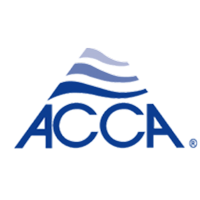
Ever done a double take when you checked your last energy bill? While high energy bills can be the consequence of severe weather conditions, consistently high bills can often suggest an inefficient HVAC system or your home is wasting energy because of other means, such as drafty windows or poor insulation.
An easy way to figure out whether your home is consuming too much energy is by calling a home service specialist to carry out a home energy audit, also known as a home energy assessment. Keep reading to learn more about home energy audits, including what they are and their key elements.
What Is a Home Energy Audit?
An energy audit is a comprehensive inspection of how much energy your home consumes and whether – and where – your home may be losing or wasting energy. An inspector will review past energy bills while completing an energy audit to find out where energy is being wasted and how much.
The general goal of an energy audit is to help homeowners save money on their energy bills by suggesting energy-efficient renovations, which can include replacing your existing HVAC system, installing new insulation, sealing up leaks, or replacing loose windows.
During the energy assessment, the auditor also completes an inspection of the outside and inside of your home. The auditor performs a blower door test on doorways, windows and fireplaces to figure out if there are air leaks in your home. They’ll also inspect your home’s HVAC system, as well as the ductwork, the water heater, and the insulation in your attic. Some assessments may also include reviewing your current lighting system.
Benefits of a Home Energy Audit
It can be tough for the average homeowner to know for sure how efficient their home is compared to other similar homes in their neighborhood. However, lots of energy companies often offer information about where your home ranks when compared with similar homes and whether it’s more efficient, about average, or inefficient in contrast with your neighbors’ homes. This is a good starting point to figure out if you need an energy audit completed.
Several of the benefits of a home energy audit include:
Understanding How Efficient Your Home Is
It’s worthwhile to understand how efficient your home is and where you’re using up the most energy. For example, if your ducts are damaged, it could lead to a large increase in your energy bills and increased wear and tear on your HVAC system since it has to work longer to properly heat or cool your home.
Making Energy-Efficient Improvements
An energy audit should expose where you need to make energy-efficient improvements to save on energy and reduce utility bills. This may include replacing worn weatherstripping or getting a new energy-efficient furnace.
Improving Health and Safety
Permitting air to leak into your home through doors and windows, or because of a lack of insulation can cause unwanted moisture to form, which may negatively influence your home’s humidity levels or encourage mold. This can lead to health conditions, particularly for people suffering from asthma or allergies.
Adding to Your Home’s Retail Value
Energy-efficient homes are sought after by homebuyers. You can sell your home sooner or for more money by telling possible buyers that it’s energy efficient.
How to Perform an Energy Audit of Your Home
Although completing an energy audit on your own will not be as thorough as choosing a professional, it’ll give you a broad sense of how energy efficient your home is. If you don’t find any problems during the DIY test, then you probably don’t need to bring in a professional. Use this step-by-step checklist:
- Inspect your HVAC system. Leaky ducts can lose up to 20% of conditioned air, leading to steeper energy bills and excess strain on HVAC equipment. If you find leaks, use duct tape to eliminate them. If your HVAC equipment is old and wearing down, upgrading to a new system can save you a substantial amount on your energy bills. In some cases, it might be better to call a reputable HVAC company to inspect your system.
- Look for air leaks. Air leaks on average can raise monthly energy bills by 10 to 20%. Inside, look for air leaks in areas where there is a draft, such as along the edge of flooring and close to baseboards and electrical outlets. Outside, you can inspect for air leaks along the home’s foundation, siding and mortar. Plug, caulk or seal any air leaks to save money.
- Examine insulation. If your home is older, it could mean your insulation is too. If you can see the joists, you likely need more insulation.
- Check ventilation. Make sure that all of your kitchen and bathroom exhaust fans are working properly, and check for evidence of rot or moisture.
Contact J & J Air Conditioning for a Professional Energy Audit
If you are interested in professional help figuring out how energy efficient your heating and cooling equipment is, contact the HVAC pros at J & J Air Conditioning today. We’ve proudly served the residents of Eastland with quality home services for years. Contact us today to set up an appointment.

